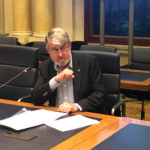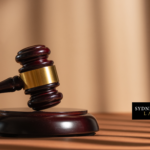Whistleblowers Face Prison for Revealing Conditions in Detention Centres

Ever heard of the Australian Border Force Act? Chances are, you probably haven’t.
This law was passed recently, quietly, and by both parties of parliament with little fanfare, and will come into effect in July 2015.
You probably have, however, heard reports about the horrendous conditions in immigration detention centres – the unsanitary living quarters, lack of basic amenities including medical assistance, high rates of depression and other mental health problems, sexual abuses of women, physical abuses of men. You may even have heard about the preventable death on Manus Island due to sepsis from a cut foot.
But just like we are no longer supposed to hear about abuses on offshore boats – making it seem like the problem is under control – the government has also made it a criminal offence to speak about abuses and conditions in immigration detention centres.
The Border Force Act is not aimed at fixing any of the problems in detention centres. Rather, it ensures that we hear a lot less about them – creating a mechanism to hide information about deprivations, mistakes or even deliberate corruption.
What is the new law?
In mid-May, Minister for Immigration and Border Protection Peter Dutton released a press statement talking about the Australian Border Force Act 2015.
The statement described the Act as “the nation’s first line of defence against individuals and networks seeking to undermine our border controls or threaten our community.”
Nothing controversial was mentioned in the statement, but section 26 of the Act has proved to be very concerning indeed.
Under that section, the Commissioner is allowed to tell “entrusted persons” not to report serious misconduct or criminal activity if it affects, or is likely to affect, the operations, responsibilities or reputation of the Department.
And under section 42 of the Act, it is an offence to make a record or disclose protected information. The penalty is imprisonment for two years.
“Entrusted person”
An “entrusted person” means the Secretary, the Australian Border Force Commissioner or an Immigration and Border Protection worker.
The last category covers nearly everybody that carries out work in a detention centre, whether working for the government, an agency, or a contractor hired to perform services.
This includes doctors, teachers, or just about anyone who is engaging in paid work of some form.
This means that anyone who exposes corruption or abuse of power by other workers may risk imprisonment.
Previous cases of silencing
This is not the first time the government has tried to silence unwelcome criticism of detention centres.
In October last year, charges were brought against ten staff of charitable organisation ‘Save the Children’ on Nauru who exposed the treatment that refugees were exposed to.
The staff were on Nauru to provide counselling services to children who are detained there. When they revealed the deplorable conditions, Minister Scott Morrison referred the aid workers to the Australian Federal Police. The workers were then charged with an already existing offence of ‘Disclosure of Information by Commonwealth Officers’ under section 70 of the Crimes Act 1914 Commonwealth, which is punishable by up to two years imprisonment.
That section says that any Commonwealth officer who publishes or communicates (without authorisation or lawful excuse) information that comes into their possession by virtue of being a Commonwealth officer is guilty of an offence. It applies even if the worker is no longer a Commonwealth officer at the time of the disclosure.
The charges were later dropped because the section is not wide enough to cover the workers, but the new Border Force Act laws make it much easier to prosecute a far wider range of people who might reveal information that the government wants hidden.
Are there any exceptions to the gagging provisions?
There are some exceptions to the provisions.
One example is section 48 of the Act, which allows for an entrusted person to disclose protected information if:
- They reasonably believe the disclosure is necessary to prevent or lessen a serious threat to the life or health of an individual; and
- The disclosure is for the purpose of preventing or lessening of the threat.
This means that while a disclosure could be made to prevent a serious threat to life or health, information could not be revealed that generally describes the deplorable conditions in detention centres.
Concerns
It is feared that the law is removing transparency and accountability. Human rights groups have stated that there must at least be an exception for doctors who are concerned about the health of their patients. For many doctors and nurses who work in detention centres, these new laws may force them to choose between their professional duty and facing imprisonment for speaking out.
President of the Australasian College of Physicians, Dr Nicholas Talley, has expressed concerns that his colleagues who work in the centres will no longer be able to speak out about the appalling conditions that refugees are forced to live in. He believes that silencing the doctors will, in turn, impact upon their own mental health and ability to meet ethical obligations.
What about protection for whistleblowers?
The Public Interest Disclosure Act 2013 can override the provisions of the Border Force Act to provide some protection for whistleblowers – but only to a limited extent.
The Act protects officials who are reporting maladministration, but it does not protect doctors and nurses who are concerned about their patients’ welfare.
And the Public Interest Disclosure Act certainly does not provide a blanket protection. Under the Act, only “public officials” are protected, and their disclosure must meet the strict criteria of “public interest disclosure”. Anyone who discloses information outside the limited circumstances covered by the Act will remain exposed to criminal liability for speaking-out.
Indeed, Australia’s protection for whistleblowers lags behind that of many other G20 countries.
How does the government have the power to make laws like this?
It may seem unbelievable that laws like the Australian Border Force Act have been passed in Australia, by both major parties, and with little public debate.
Surely, you may think, this goes against our rights?
But Australia does not have a Bill of Rights and there is nothing in the Constitution to protect us from draconian laws like this.
Courts have consistently found implied freedoms under the Constitution, including the freedom of political communication, and can deem laws invalid if they violate this freedom.
However, this freedom is by no means absolute. Laws may infringe on our freedom of political communication if they are “reasonably appropriate and adapted”. As outlined in previous blogs, other laws have been quietly passed in recent years preventing people from speaking out against government abuses, such as unjustified ‘anti terrorism’ raids and the treatment of asylum seekers on offshore boats.
Whether such restrictive laws are “reasonably appropriate and adapted” is something that only the High Court can decide.






